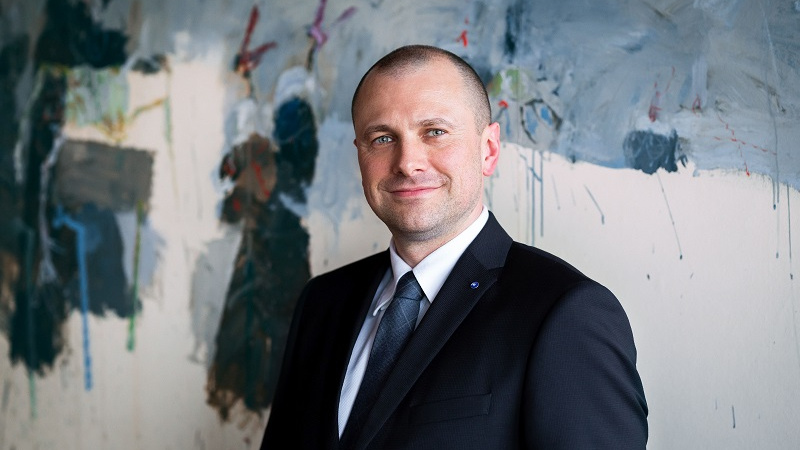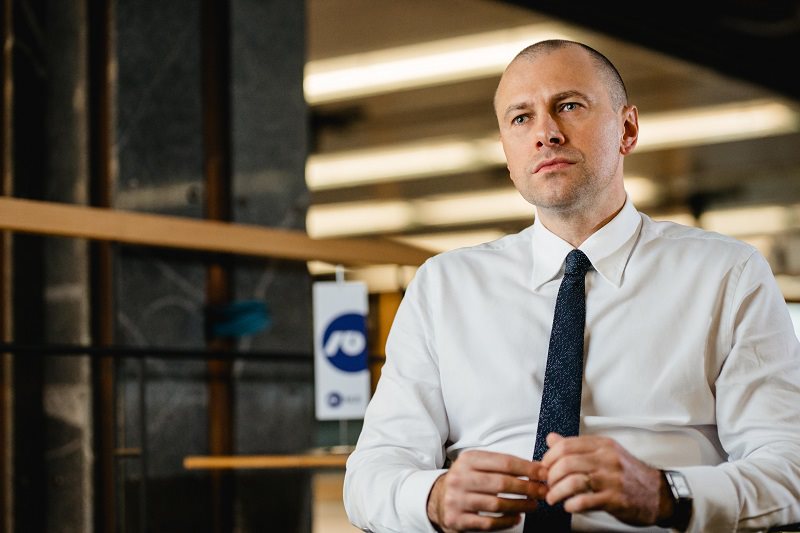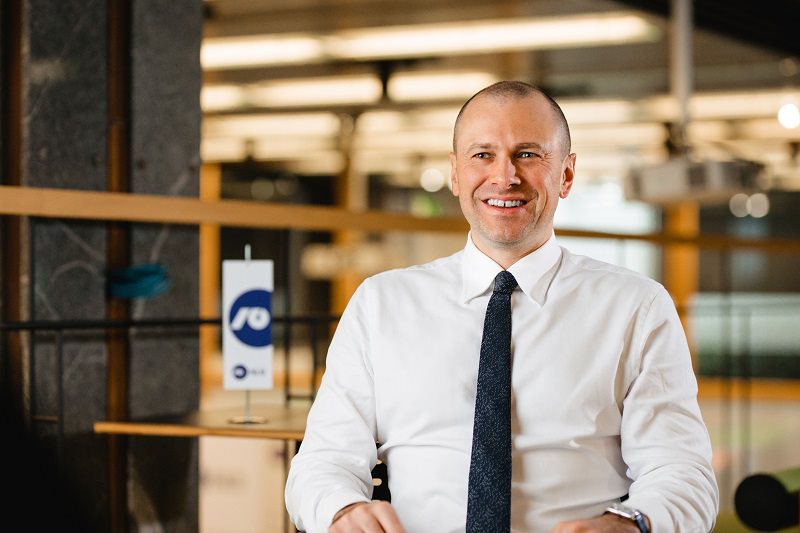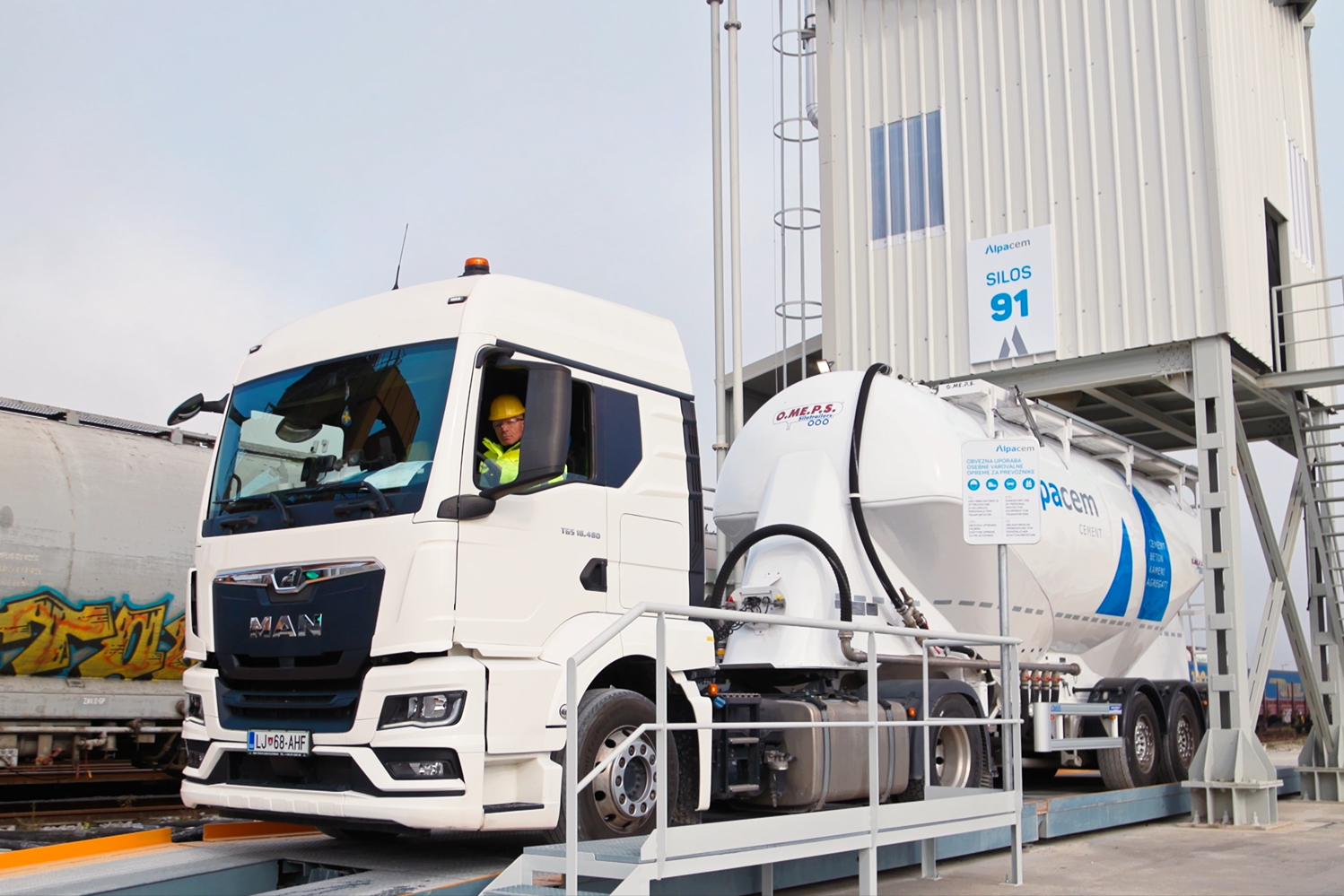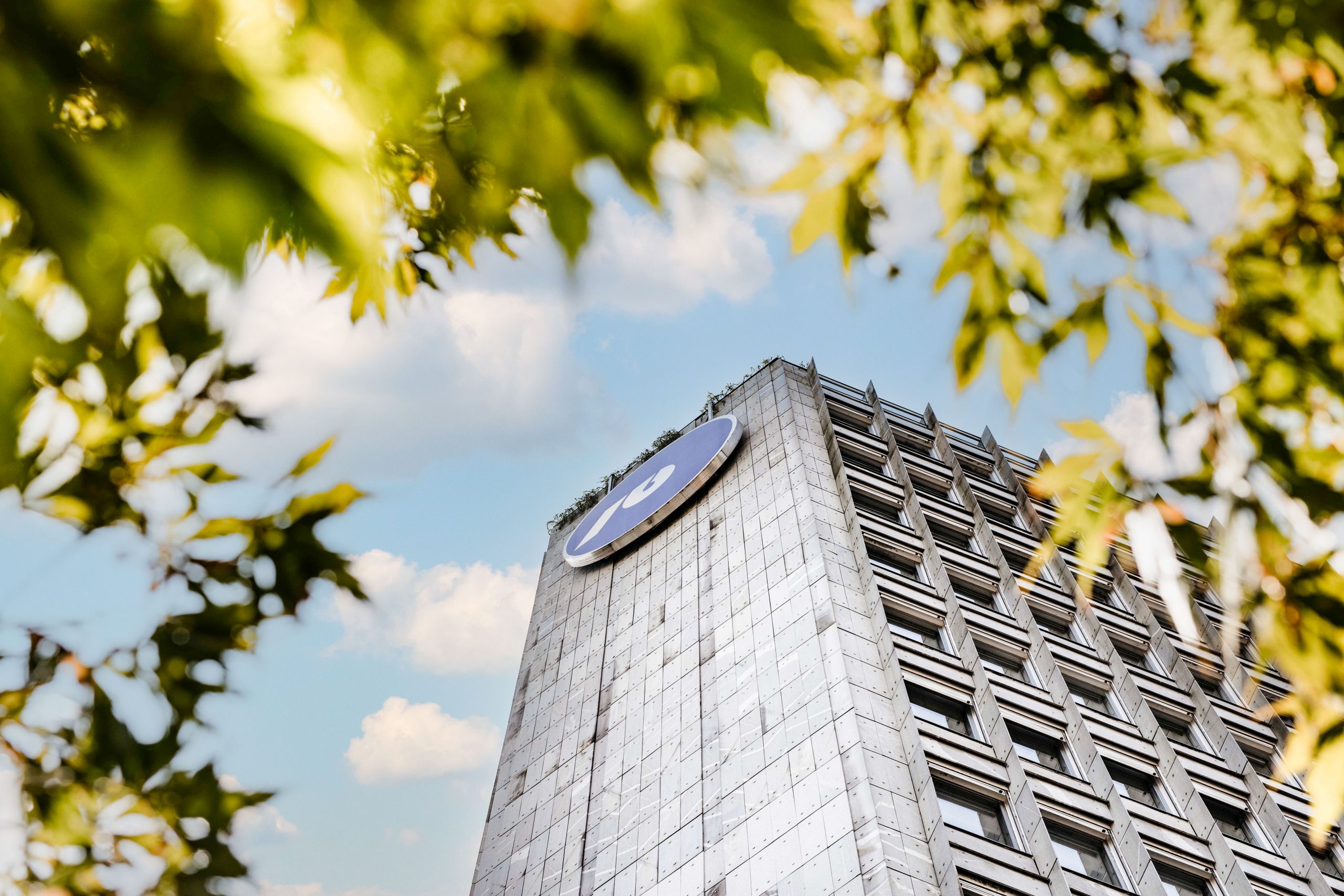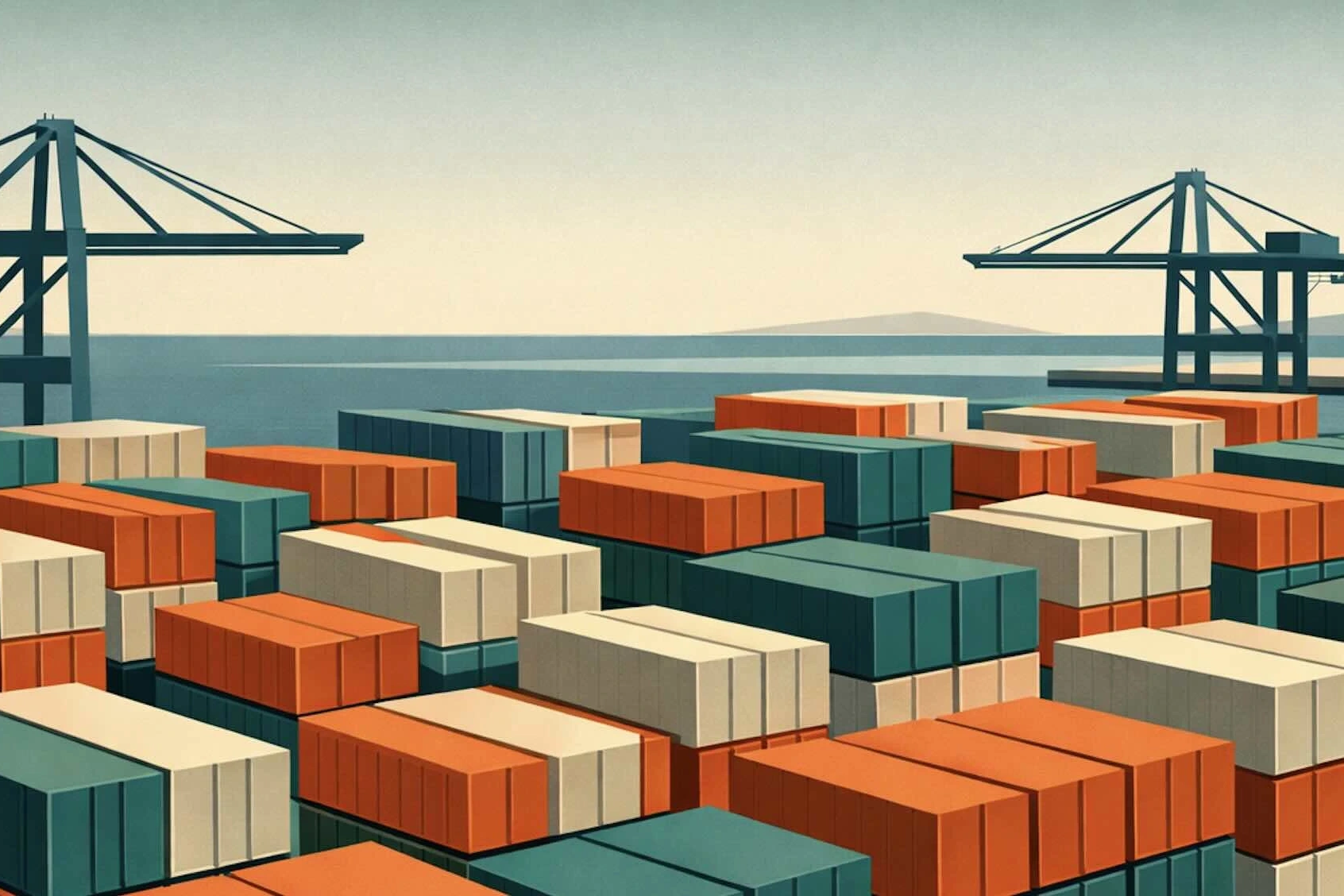Interview with Blaž Brodnjak, CEO of NLB Group
A Historic Opportunity for the Adriatic Region
Tine Kračun
EDITOR IN CHIEF
Jan Tomše
EXECUTIVE EDITOR
Iztok Lazar
PHOTOGRAPHER
The corona crisis has shuffled the cards in the international arena, presenting a unique opportunity for Southeast Europe to attract international supply chains that are looking for better risk-management options, argues Blaž Brodnjak, the CEO of NLB, a banking group with a strong systemic position in the region, and one of the most important business groups in the countries of former Yugoslavia.
Despite last year’s pandemic, NLB actively continued to implement its strategy in the region. At the end of the year, it completed the purchase of a stake of 83.23% in Komercijalna Banka a.d. Belgrade (KB). This was the final milestone in this important deal aimed at realizing NLB’s goal –to become a leading financial institutionwith its headquarters and focus in its home region,Southeast Europe. The KB acquisition makes NLB the third–largest bank in Serbia in terms of total assets. With Blaž Brodnjak, the CEO of NLB bank, we talked about the impact and consequences of the pandemic in the region, the opportunities arising from the crisis, and the role and activities of NLB as a systemic bank.
In your opinion, how did the corona crisis affect economic and social life in Southeast Europe?
The impact is diverse and manifests itself differently in individual sectors as well as countries. It is also necessary to understand the difference between the first wave with full lockdowns, and the second wave when industrial production was exempt from closures. Therefore, we can see a very robust picture in manufacturing, where we are witnessing almost the same year-on-year volumes as in 2019, both in terms of electricity consumption and production volume. For the most part, this also holds for revenue. Food retailers have recorded growth, as has the pharmaceutical sector. There are also many first-class Tier-1 automotive suppliers in Slovenia that maintained a solid order book, and their capacities will be almost fully utilized by the end of this year’s first quarter. By far thehistoricallyhighest proportion of unused loans at the momenthad been earmarked for financing working capital. Since the deposits of the corporate are still growing, this implies that aggregate liquidity is still very robust. On the other hand, we also have industries that are affected by the lockdown or cannot carry out activities at all, which means they have no cash flow. Those industries are forced to rely on state provision. In doing so, it is essential to ensure these companies survive during the closure of their business operations. The measures that make this possible are fiscal. Whether they are sufficient for all segments and subsystems is debatable.However, there is always some moral hazard present as well. When things go bad, we expect the state get involved, and when things go well, we want to limit its involvement. In this part of the world, there is also much improvising, a lot of work is done illegally which is not good either from a healthcare perspective, since we have no control over people’s movements, or from an economic perspective, as this overburdens the public coffers. The truth is always somewhere in between, but closed businesses need enough help to survive until the measures can be lifted and they can resume their operations. Slovenia shares the fate of the core central European countries. Tourism is also moderately to fairly represented in our GDP. On the other hand, among the countries in the region, Serbia is by far the least dependent on the EU. It is self-sufficient in food and energy and open to all sides, from Russia, China, and Turkey to the EU and the USA. Overall, Serbia is by far the least affected by this crisis. If we look at the pandemic measures in Southeast Europe outside Slovenia, we see that many countries have not closed public life. In Bosnia and Herzegovina, people can visit restaurants, go skiing, or visit shopping centres without restrictions.
However, their health situation is not significantly worse than in Slovenia. Indeed, they cannot afford to introduce measures to such an extent as in our country. As a result, the population may be more affected health-wise but not economically. If we look at Serbia, which has not had a completely lock-down during the pandemic, their economy is very robust. The prime minister Ana Brnabić even estimates the GDP had only shrunk from1% to a maximum of 2% in 2020.
Slovenia ranks fourth among European countries in terms of investments in Serbia. How do you see Slovenia’s role in Serbian economy? And what about the NLB’s role, especially after taking over the Komercijalna banka?
Serbia is a ‘natural terrain’ for us. In Austria, Germany, and Italy, Slovenia is emerging as an exporter building the Made in Slovenia brand. In the markets of Southeast Europe, however, this brand is already established. During the transition period, thebrand’s recognition was somewhat lost, but now it is coming back. Recent transactions carried out by Slovenian companies are once again returning Slovenian capitalto a more significant extent. Petrol is becoming the second strongest oil trader in Croatia, and NLB the third strongest bank in Serbia. We operate in two key industries: energy and finance. In the region, there are no global players from USA, UK or Germany. The French are also withdrawing, while the Russian and the Turkish players are trying toassert their influence, hindered by the European Commission’s pushback. This is a specific and competitive environment, which offers great opportunity to local and regional players,provided they have the potential andavision of what they want todo.Inrecent years, Slovenian companies have significantly reduced their debt and are once again looking beyond Slovenia’s borders.Anotheroption(for them–Ed.)is to organise production and sales activities in the countries of the region.To a certain extent, Slovenian companies are seen as role models in the region due to the country’s EU membership, the adoption of the euro, a focus on sustainability and its quality of life. Slovenia is also viewed as a‘local’. Speaking similar languages is an asset, while a shared history is not only a burden but a great advantage, too.
Where do you see the role of Slovenian businesses in promoting the internationalisation of the economy in the region?
I believe reconnection is the key to this region. It is not about nostalgia for the former Yugoslavia, but about removing restrictions on the movement of people, goods, and capital –possibly in the form of a free trade agreement. I think the Scandinavian model is a good example, since not all countries in that region are in the EU nor do they all use the euro as currency. These are very similar circumstances to our region. We also have the advantage of being located almost in the heart of Europe. Due to the accessibility of waterways andthe appropriate infrastructure, this area also has a logistically ideallocation.Adriatic ports provide the most favourable access to Central Europe, with three or even four efficient logistic corridors connecting the region with the centre of Europe. This opens up great opportunities for logistics. In thatrespect, Slovenia has a very good starting point as it is very close to the industrial cluster of South Germany, which is the strongest in Europe.
What do you see as the main opportunities for the region?
The key may be in the specialisation. Slavonia region(in Croatia–Ed.)and Serbia areideal for food production. This can be an enormous business opportunity, especially with regards to the sustainable food production, not only for self-sufficiency, but also for supplying other parts of Europe. Tourism is also an opportunity. Not mass tourism, but sustainable boutique tourism at the highest level. We have the natural resources, but we need to provide services at an appropriate level that would justify thepremium prices charged in that niche.It should also be noted that labour costs in this region are still lower than elsewhere in Europe. In the context of the corona crisis, this is one of the historic opportunities. A significant portion of global supplychains are returning from the Pacific to Europe. The reason is to better manage risks in the event of another pandemic outbreak.
I also see an opportunity in the changing patterns in our daily behaviour, because we move more locally -and will continue to do so in the future–andon the other handthere is less day-to-daywork travel. Both address the sustainable agenda.Also, the region’s competitiveness cannot be underestimated.Labour costs -except for higher wages in Slovenia due to excessive taxation-are still lowerand the population is solidly educated. Just take alook at what a vision can do. To me, an outstanding role model is South Korea, which is a leading country today in four extremely important global industries.It was a vision of one man who managed to attract the others. Now is the time for theSEEregion –especially with the flood of international measures of financial assistance –to build productive infrastructure on which to base sustainable development in targeted activities.
What are the major challenges the region needs to overcome to achieve a breakthrough?
And what is NLB’s role as one of the leading banks in the region?The key thing is political stability with a clear vision. We know that no serious shift will happen without this. A clear vision means political predictability. A precondition, though, is national unity regarding key priorities, independent of ideology or any establishment strictures. Some countries in the region have this vision, others do not. But everyone in the same space is competing with economies that have that vision. Just look at the Digital Serbia project, which is a great example. Serbia has made a decision to become a leader in the region in digital technologies. Today, they educate by far the largest number of computer scientists. Belgrade, Niš, and Novi Sad are becoming hubs for the development of information technology, both for Europe and for other parts of the world. And this happened in less than ten years from taking the decision for such a direction. The region should come together to address and properly outline what its basic competitive advantages are, both in terms of the whole area and of individual countries, and then to pursue common goals jointly. A connected single market would be more competitive, more sovereign, and more resilient to shocks. For this, we need people with a clear vision and a sincere interest in such networking. We need regular dialogue to reach common solutions. Crucially, this should be basedon economic pragmatism, not ideological beliefs.
How would you comment a proposition that this dialogue could be hastened by the business itself and NLB as a strong regional bank?
NLB implements its strategy in the region independently. We do not expect any help; we received state aid in the past and now our mission is to return it. Since the financial rehabilitation, NLB has already paid more than EUR 1.8 billion into Slovenian budget through purchases in privatisation, dividends, payments of different types of taxes and contributions. The state’s share in the bank is currently worth some EUR 240m, so the total assets returned to the state to date stand at more thanEUR 2 billion. The state has invested a total of EUR 2.23 billion in NLB. With the expected growth in dividends and market capitalisation, we will fully repay this amount within a few years.
Our strategy is thereforeimplemented autonomously, independently of the state.However, when I visit countries where we are present, I take every opportunity to appeal to the importance of greater connectivity, a common view, and a larger market, which would result in a better offer of value for investors from abroad. Serbia understands this. In terms of the share of foreign direct investment per capita in recent years, Serbia is among the leaders in the world.So, it has opened up to the world, recognising great value inforeign direct investment. By implementing its strategy, NLB promotes integration, openness, market expansion, and meritocracy. The latter must be achieved in all subsystems.
So what are the key priorities?
In my opinion, the key priority for a small, open economy is becoming internationally competitive. Everyone in the region should be actively involved in this goal as we are in the NLB Group. We want to help the economy with investments that both increase competitiveness and are sustainable. As companies become stronger and more successful, all of us who support them and cooperate with them,become or are becoming, stronger and more successful as well.
How would you define NLB’s position in the region?
NLB deals with socially relevant topics since we are a systemically important group. Following the acquisition of Komercijalna Banka, we rank among the three largest banks in six countries in the region. This puts us in a special position, and also imposeson us a lot of responsibility. Looking at it from a sustainability perspective, we made a statement by deciding not to fund coal-based technologies any longer. It is a statement that is not political but systemic: “We need to accelerate renewable energy in the region.” Throughout the region, we are looking for opportunities to fund wind farms, as well as solar and hydropower plants. In doing so, we are trying to accelerate the transformation of the energy sector in the direction of sustainable resources. At the same time, we also advocate other elements of our socially responsible platform -i.e. social and management-by advocating meritocracy and equality in business and personal relations within society and in the wider environment. By digitalising services, we make services accessible anywhere but also lower our carbon footprint –not only because customers do not need to travel to have access to our services, but also because we are a paperless business.
Where do you see the region in economic and social terms in 10 years?
I want to see the region as one of the fastest development areas in Europe. I want to see a much more connected region, about to establish-or with already established-single economic zone. In my opinion, Slovenia and Croatia should argue in Brussels that if some countries are not able to fully join the EU, they should at least be allowed to join economically. This would mean the region would somehow be ‘attached’ to the EU as an economic zone. This seems to me to be socially responsible on the part of the European Commission. I see no reason why an area of 14 million people, surrounded by EU countries, could not become part of this area. Anyhow, the only way to reduce political risks and social pressures in Bosnia and Herzegovina is full integration into the EU.
Where do you see the biggest challenge for sustainable development in the region? For example, there are problems in competition between companies from Slovenia and the EU on one side and companies from the East, which do not have certain requirements and restrictions on sustainability and the environment. Will the corona crisis change the way we view thinking and practices in sustainability?
This is a tough question. It makes little sense to take a simplified view of the approaches and practices by competitors from the East, as they are also very competitive technologically. Heads of state must certainly step up in their thinking about renewable approaches –but this realization must mature in the minds of every individual. Is it really necessary to produce so much waste and emissions? For me, digitalisation is one of the positive impacts of the corona crisis. However, the unwanted consequence of more online purchases is also more packaging waste. What does this mean in terms of waste management, and also self-discipline to act responsibly? Instead of turning the awareness to the importance of clean environment, the opposite is happening: through irresponsible waste management, people are showing less interest in such topics. Lately, we have seen how we can contribute to a cleaner environment. At NLB, employees can work from home permanently if they choose so. This means less commuting and less environmental pollution.I understand those who do not decide to work from home for objective reasons, butless those who do not have a good reason for it.Also, we can either choose to do business using paper or go paperless. We can use solid fuels for heating or opt for natural gas. We are individuals facing decisions what to give up and invest in sustainability. Even though this may mean, for example, additional EUR 20 in monthly costs.It is a conscious decision and, unless it results in social distress, it is no longer excusable to maximise the economic situation of an individual at the cost of further destruction of the environment.Heads of state must understand that they can no longer sacrifice air. This is a problem in the countries of SE Europe, where air quality on individual days is the worst in the world, and it must be dealt with decisively at the systemic level. There are international aid and policy instruments that can address these challenges.
You have repeatedly emphasised the importance of structural reforms. Why?
If countries want to position themselves as internationally competitive economies, then it is essential to adapt the supportive environment. In Slovenia, for example, this means the implementation of structural reforms. Mainly labour law, tax legislation, capital markets, pension system. I would also highlight the reform of the education system, which is urgently needed if we want to have an education system that follows actual market needs. It is also important to understand the importance of capital. Domestic capital is not a bad thing, but it can be an additional incentive in the development of our multinationals through issuing shares on the Ljubljana Stock Exchange. NLB is a good example of an ownership model thatoperates on the principle of a core owner with a holding of 25% + 1 share. This model can be applied both to state-owned companies and to privately-owned ones, which the owner has brought to the point to enable additional incentive. The listing allows himor her to withdraw completely from the ownership role, gain additional capital in the market, and appoint professional managers to the management. Slovenia’s population owns financial assets of a total EUR 55 billion. If only 5% of these assets were earmarked for the development of Slovenian companies so that the population would take part in their success –both through dividends and through growth in the market value of capital shares –then we could be a different society. Also, if we encouraged internal company ownership by making it tax-stimulating, we would achieve a lot more. Above all, we would ensure that in Slovenia, we have companies with an international reach, quality corporate governance, and the ambition to become a homeland of success and talent magnet. Attractive and competitively paid jobs willretain andattract the best talents to our countries and, together, we could create an environment with one of the highest quality of life on the planet.
THE ADRIATIC
This is an article from Adriatic Journal Strategic Foresight 2021
If you want a copy, please contact us at info@adriaticjournal.com.

